Wall Street follows FTSE 100 and European stocks higher despite weaker than expected US retail sales


Wall Street opened higher on Tuesday, taking its cue from the FTSE 100 (^FTSE) and European stocks, despite weaker-than-expected US retail sales figures.
Retail sales across America barely grew in May — rising by 0.1% after a downwardly revised 0.2% fall in April. On an annual basis, retail sales were 2.3% higher than in May 2023, a slowdown on the 2.7% rise recorded in April.
It came as traders also shrugged off confirmation that eurozone inflation accelerated last month, climbing to 2.6% in the year to May, from 2.4%.
This was according to statistics body Eurostat, which confirmed its flash estimate given at the end of May.
Core inflation, which strips out energy, food, alcohol and tobacco, rose to 2.9% from 2.7%. This figure was also in line with initial estimates.
Read more: Interest rates will remain higher for longer, say BlackRock analysts
Elsewhere, new data from Kantar showed that UK grocery inflation fell for the sixteenth month in a row in June. This was, however, the slowest increase since June 2022.
Annual grocery price inflation came in at 2.1% in the month to 9 June, with declining prices of toilet roll, butter and milk down from 2.4% in the previous four-week period.
-
London’s benchmark index was 0.6% higher on the day
-
Germany’s DAX (^GDAXI) rose 0.3% and the CAC (^FCHI) in Paris headed 0.8% into the green
-
The pan-European STOXX 600 (^STOXX) was up 0.7%
-
Wall Street opened higher as US factory output beat expectations to rise sharply in May
-
The pound was down 0.1% against the US dollar (GBPUSD=X) at 1.2691
“European markets enjoyed a strong start to Tuesday, with the FTSE 100 the biggest gainer among the continent’s key equity indices,” says Russ Mould, investment director at AJ Bell.
“The UK index jumped 0.5% to 8,185, led by banking, mining and energy sector shares. Ninety-three stocks out of 100 were in positive territory, which is an encouraging sign. Broad gains imply that investors are in a risk-on mood and are not simply hiding in one part of the market.”
Read more: Trending tickers: Apple, Palantir, Tesla and Whitbread
Follow along for live updates throughout the day:
Live24 updates
-
Blog close
Well that’s all from us today, thanks for following along. Be sure to join us again tomorrow when we’ll be back for more.
Have a good evening all!
-
Palantir stock goes up
Shares in software company Palantir (PLTR) were the sought after following the US opening bell, as Argus Research analysts began coverage of the data-analytics software company with a ‘Buy’ rating.
Analysts at Argus Research believe Palantir stands to benefit from growing sales to commercial clients. The target for the stock price is $29, with artificial intelligence highlighted as a potential catalyst for continued growth.
“Warfare in this century will continue to be transformed by software,” Alex Karp, chief executive of Palantir Technologies, said in his letter to shareholders in May.
“Many fear the application of artificial intelligence in the military context, including its potential to make possible more autonomous and indeed self-directed weapons systems,” he added.
However, Karp said, the company’s software “has become as vital to the elimination of an adversary as it is to protecting the innocent from harm.”
-
US factory output rises despite interest rate hold
US factory output beat expectations in May, rising sharply despite interest rates remaining at a 23-year high.
According to Federal Reserve data, industrial production rose by 0.9% in May from a month earlier, significantly higher than the monthly gains seen in both March and April.
It was also well above market expectations of a 0.4% monthly rise.
-
Hargreaves Lansdown gets new £5.4bn takeover offer
Hargreaves Lansdown has received a new takeover proposal, worth £5.4bn, from a group of private equity buyers.
The offer for the investment platform follows three previous approaches in recent months from a consortium of CVC Advisers Limited, Nordic Capital and Platinum Ivy of Abu Dhabi.
They are proposing to pay 1,140p per share in cash, up from a previous 985p per share offer which was rejected in April.
Hargreaves Lansdown’s board said on Tuesday that it was willing to recommend this new proposal unanimously to shareholders.
Shares jumped 5% on the back of the news.
-
US retail sales rise slower than forecast
US retail sales barely grew in May — rising by 0.1% following a downwardly revised 0.2% fall in April.
On an annual basis, retail sales were 2.3% higher than in May 2023, a slowdown on the 2.7% rise recorded in April.
Michael Brown, analyst at Pepperstone, said the report was a further sign that the “US exceptionalism” narrative has likely run its course.
“The May US retail sales report points to further signs of fatigue for the US consumer, with headline sales rising by a meagre 0.1% MoM, up from a downwardly revised 0.2% decline in the prior month.”
slowing eco
⭐ Retail Sales Ex Gas/Autos MoM, Actual: 0.1% 🔺, Previous: -0.3%
⭐ Retail Sales YoY, Actual: 2.3% 🔻, Previous: 3%
⭐⭐ Retail Sales Ex Autos MoM, Actual: -0.1% ❌⚖️, Forecast: 0.2%, Previous: -0.1%
⭐⭐⭐ Retail Sales MoM, Actual: 0.1% ❌🔺, Forecast: 0.2%,… https://t.co/CtU3gtwXEZ
— god of trade (@candkjr) June 18, 2024
-
UK interest rates set to remain on hold ahead of general election
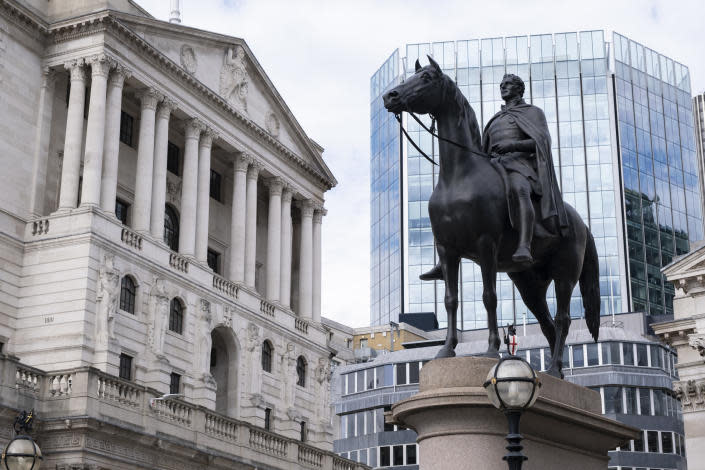

The Bank of England is set to leave interest rates unchanged at the 16-year high of 5.25 when it meets this Thursday with most analysts expecting a cut only in August.
Most economists think it is very unlikely that the Bank of England would be willing to start cutting interest rates in the middle of an election campaign.
Threadneedle is in a holding position as it abides by the rules of the pre-election campaign period, meaning its policymakers cannot make any speeches or public statements. This period of silence makes a rate cut in June an unlikely move.
Sandra Horsfield, an economist for Investec, said this matters because were policymakers to “surprise the market” with its decision on Thursday, it would not be in a position to “correct any misinterpretations” about its rates decision until after the general election, which is on 4 July.
“Why rock the boat, when there is no need for haste and no opportunity to steady it?,” she asked.
Interest rates are currently sitting at 5.25% and have been held at this level since August 2023.
-
Wall Street to open higher as traders await retail sales figures
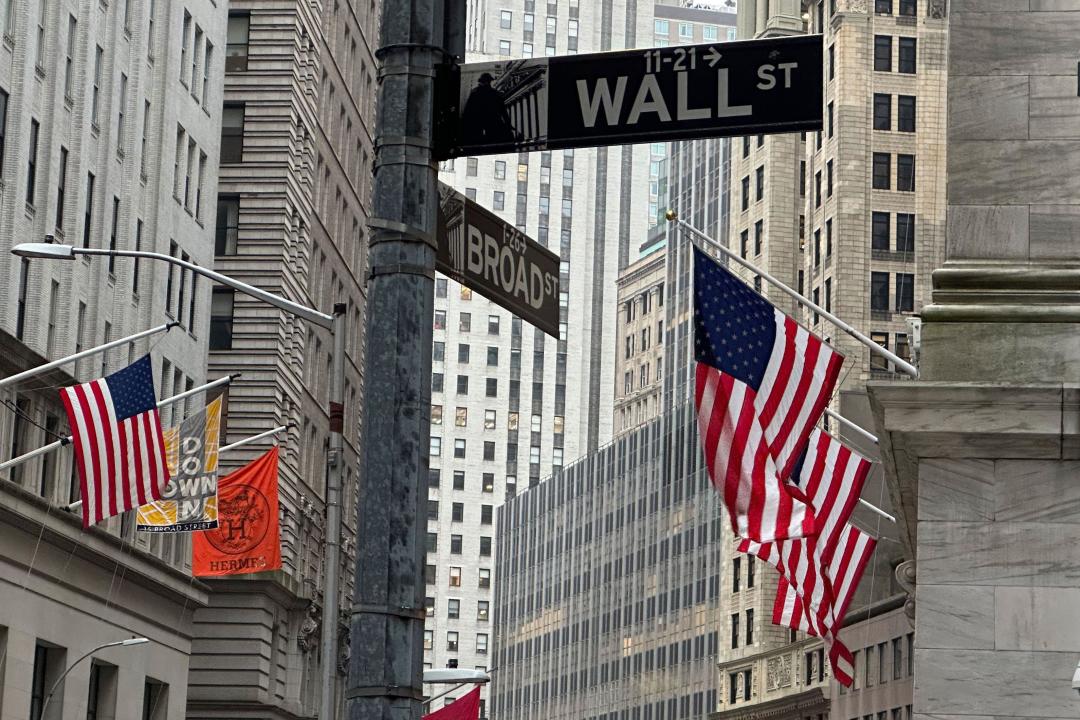

FILE – American flags hang from the front the New York Stock Exchange, right, on April 11, 2024 in New York. Global shares are trading higher on Friday, May 10, 2024, after a rally on Wall Street that pulled the S&P 500 back within 1% of its record. (AP Photo/Peter Morgan, File) (Peter Morgan, Associated Press) US stock markets are hovering around record highs ahead of retail sales data, and commentary from a number of Federal Reserve officials.
Comments from Federal Reserve officials will be scrutinised for clues on how the central bank’s members view the current economic situation and path ahead for monetary policy.
-
French stock market ‘most unloved in Europe’
France’s stock market has become the least favourite in Europe, according to a poll of fund managers by Bank of America.
Bank of America conducted the survey from June 7 to June 13, encompassing the majority of last week’s drop, when the Cac 40 fell by the most in more than two years and wiped out $258bn (£203bn) in market capitalisation.
BofA strategist Andreas Bruckner said: “France has turned into investors’ most unloved European equity market.”
-
Oil prices hold steady
Oil prices held onto their biggest advance in a week amid a more buoyant mood on US stock markets.
Brent Crude (BZ=F) was down 0.3% to just below $84 while West Texas Intermediate was down 0.4% near $80.
Both benchmarks gained around 2% on Monday, closing at their highest levels since April. Brent has clambered back from an early-June close of $77.52, though remains off its $90 peaks in mid-April.
BoFA commodity and derivatives strategist Francisco Blanch said in a note:
“The oil market shifted its focus back to fundamentals, which have been soft for some time.”
He added that global crude oil inventories and refined product storage in the US and Singapore, among other places, was higher.
Meanwhile, global oil demand growth slowed to 890,000 barrels per day year on year in the first quarter, and data suggests consumption growth likely slowed further in the second quarter, he said in the note.
However, crude inventories are expected to have fallen by 2.3 million barrels in the week to June 14, according to analysts polled by Reuters.
-
What Labour and the Tories are offering pensioners in their manifestos


The last week has seen a flurry of manifestos outlining what the various parties will do should they win the election. State pension has been a key area, with pledges to support the triple lock coming early in the campaign.
The Conservatives then went one step further with their triple lock plus. Under the pledge, the personal allowance for pensioners will rise every year, so that someone reliant on the full new state pension (currently around £11,500 pa) won’t pay tax on it.
It’s a strong response to the issue of frozen tax thresholds pulling more pensioners into tax-paying territory. It will be welcomed by pensioners who have had their budgets squeezed by the cost of living crisis. However, others will question whether a state pension system that is already under pressure can withstand the extra cost.
But what else are the parties offering pensioners?
-
German investor confidence rises less than forecast
Investor confidence in Germany’s economy improved less than anticipated, casting doubts over the country’s rebound from a slump at the end of last year.
An expectations gauge by the ZEW institute rose to 47.5 in June from 47.1 in May — below forecasts for a reading of 50.
While it was the 11th monthly increase, it falls short of the 50 forecast in a Bloomberg survey. A measure of current conditions fell slightly, defying a predicted uptick.
Zew president Achim Wamback said:
Both the sentiment and the situation indicators stagnate. These developments must be interpreted in the context of a constant situation indicator for the eurozone as a whole.
-
Ashtead Group top FTSE faller
Ashtead Group was the top loser on the FTSE 100 this morning, dropping 3.5% after the plant hire forecast a slower growth in annual group rental revenue for fiscal 2025.
Despite the softer performance, it has still grown its annual dividend for yet another consecutive year.
The company said it has confidence in its latest strategic growth plan and still sees big growth drivers in North America.
Russ Mould, investment director at AJ Bell, said:
“When a company has already reduced guidance it is not a great look when it doesn’t clear that lower bar – almost like a high jump competition running in reverse.
“That’s the fate which has befallen equipment hire firm Ashtead as rental revenue growth came in below rebased expectations.
-
Eurozone inflation hits 2.6%
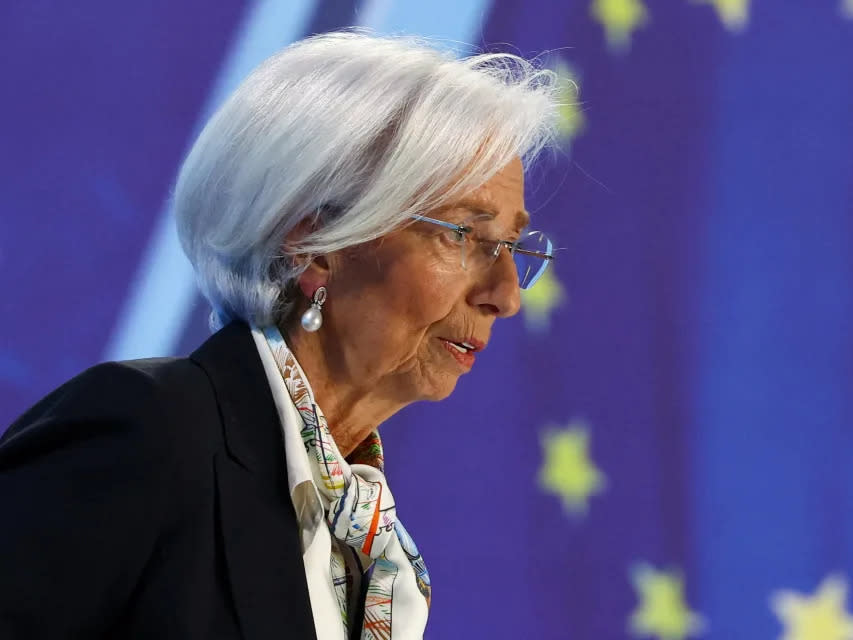

Inflation across the eurozone accelerated last month, up to 2.6% in the year to May from 2.4%.
This was according to statistics body Eurostat, which confirmed its flash estimate at the end of May.
It comes as the European Central Bank (ECB) interest rates two weeks ago as inflation had fallen close to its 2% target.
Core inflation, which strips out energy, food, alcohol & tobacco, rose to 2.9% from 2.7%. This figure was also in line with initial estimates.
-
Rail season ticket use falls to record low
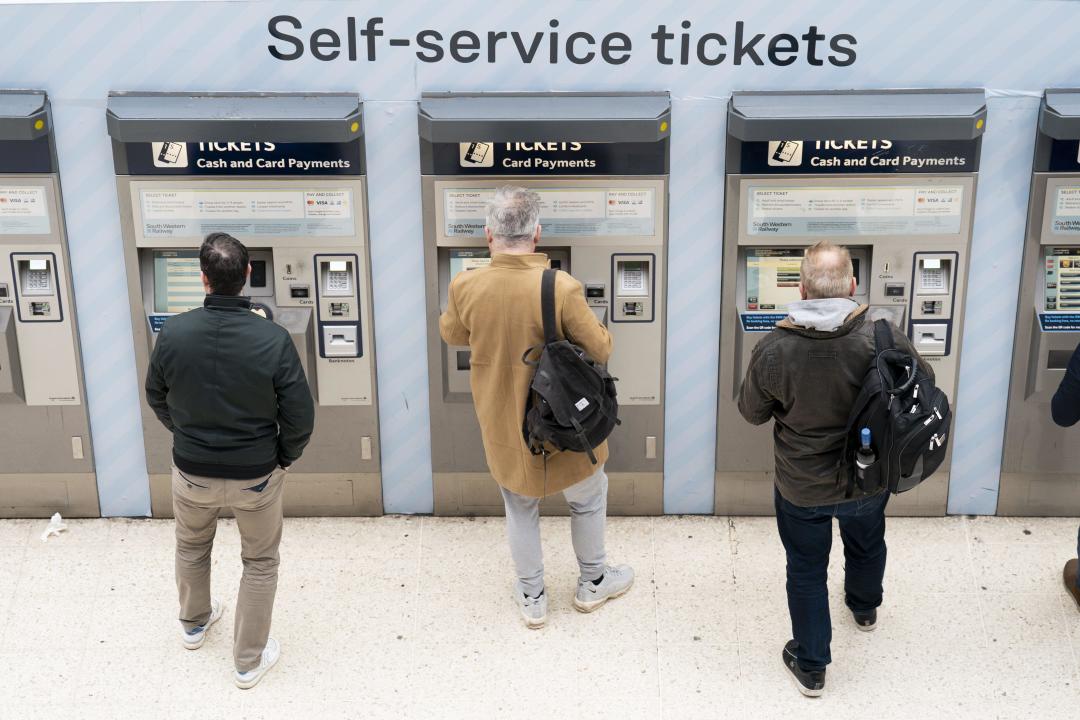

File photo dated 03/03/23 of people using a ticket machine at Waterloo train station in London. Office of Rail and Road data shows the percentage of train journeys made using season tickets has fallen to a record low, as the tickets accounted for just 13% of the 1.6 billion journeys taken on Britain’s railways in the year to the end of March. Issue date: Tuesday June 18, 2024. (Kirsty O’Connor, PA Images) Office of Rail and Road data revealed today that the percentage of train journeys made using season tickets has fallen to a record low.
These tickets accounted for just 13% of the 1.6 billion journeys taken on Britain’s railways in the year to the end of March.
This is down from 15% during the previous year, and is the lowest percentage in records dating back to 1987.
Around a third of train journeys before COVID restrictions began in March 2020 were made using season tickets. The reduction since then has been driven by the increase in working from home.
-
UK insolvencies fall in May
The number of individuals and businesses in insolvency in the UK has slowed thanks to pressures easing from rising costs.
Official data from the Insolvency Service showed that 9,266 people entered insolvency across England and Wales last month, a 4% drop compared with April.
This was also 3% more than a year ago.
There were a total of 604 bankruptcies, 3,716 debt relief orders (DROs) and 4,946 individual voluntary arrangements (IVAs).
Company insolvencies fell by 6% month-on-month to 2,006, some 21% lower than in May 2023.
Benjamin Wiles, managing director at Kroll, said:
“Compared to this time last year, we are seeing a pickup in business activity with key indicators showing improving consumer and business confidence. While I think it’s fair to say that we aren’t quite out of the woods, compared to twelve months ago when businesses were managing unpredictable cost inflation and energy bills, it does feel there’s now a lot more certainty for companies to plan.
“Interestingly, businesses we speak to are also coming to terms with higher borrowing costs – though there is evidence that some lenders are extending finance rather than restructuring debt.
Company administrations that we track are up year-on-year, but it does seem the pace of insolvencies are easing. There are some sectors including manufacturing and media and tech, which are continuing to see big increases, but overall it’s now a smaller trickle than a tidal wave.”
-
Unite to protest Whitbread’s job cuts
Unite the Union are planning to protest about Whitbread’s plans to cut 1,500 jobs.
The union sayid Whitbread have refused to consult with them since the announcement in April, neither have they answered basic questions on the redundancy process.
Unite general secretary Sharon Graham said:
“Rarely is a company so shameless as to celebrate leaping profits and dividends by announcing mass job cuts.
“But generating runaway profits while trampling workers is business as usual for Whitbread. This is a firm that refuses to pay the real living wage and does not even provide company sick pay for its underpaid and overworked staff.
“Unite will be holding the company to account for its disgraceful race to the bottom behaviour and offering full support to our members impacted by these cruel and unnecessary redundancy plans.”
-
Whitbread confident after cutting costs and boosting sales
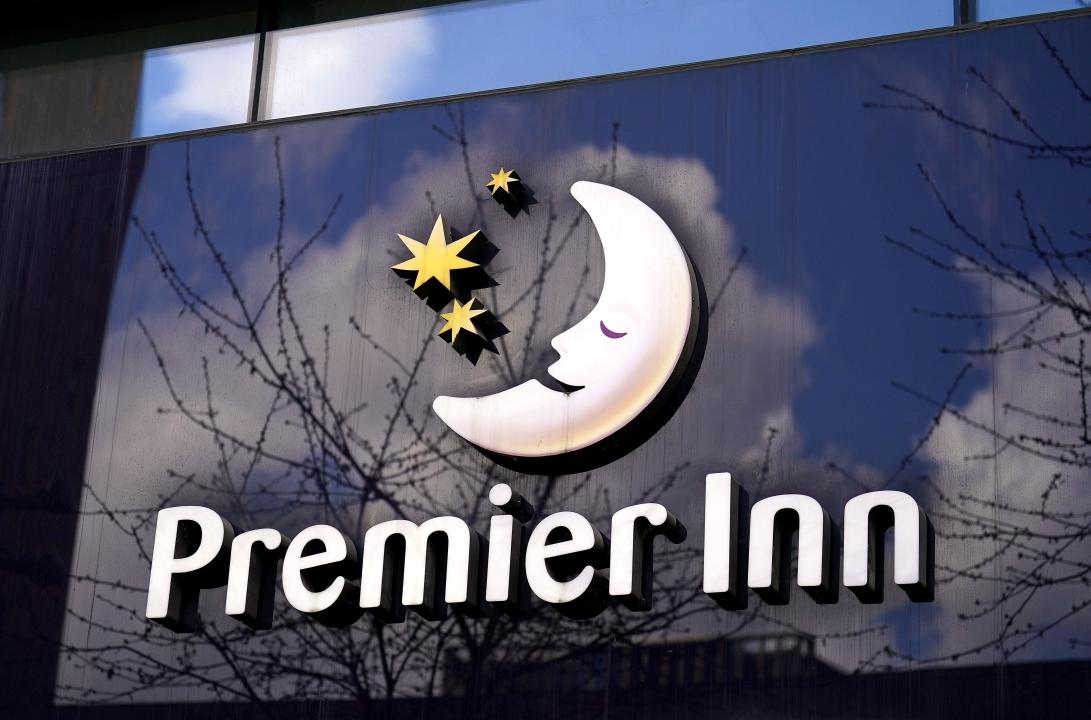

File photo dated 03/04/22 of a Premier Inn in London. Hotel and pub firm Whitbread has said trading improved across its UK Premier Inn hotels in recent weeks, despite the firm saying that demand has been (Mike Egerton, PA Images) Premier Inn owner Whitbread (WTB.L) said it is confident about the year ahead as it increased sales and cut costs amid falling inflation.
Whitbread’s shares jumped by as much as 4.6% on Tuesday morning, as investors welcomed the news that UK trading strengthened over the last quarter.
The Bedfordshire-headquartered group grew its total sales by 1% to £739m in the 13 weeks to 30 May 2024, compared to the same period the year before. Sales were “driven by improved UK trading and continued progress in Germany.”
Its Premier Inn business in Germany reported a 15% increase in total sales.
Dominic Paul, chief executive of the hospitality group, said: “Whilst the normal booking pattern means our forward visibility remains limited, our forward booked position is positive and we remain confident in the full-year outlook.
“This reflects a more encouraging trading performance in the UK, our strong commercial programme and increased cost efficiencies, as well as good progress in Germany.”
Paul added that Whitbread is on track with the programme to restructure its food and beverage business announced earlier this year, which will close or convert more than 200 restaurants and cut about 1,500 jobs.
Its £150m share buyback is on track, he said, with 3.2m shares purchased so far for £96m.
-
Dollar tests 2024 high amid Europe turmoil
The dollar is flirting with a new high of 2024 thanks to elevated US Treasury yields and investors turning to safe haven assets amid political uncertainty in Europe.
The Bloomberg Dollar Spot Index is a fraction away from levels last seen in November as technical indicators show the greenback’s strength has room to run.
Rodrigo Catril, a strategist at National Australia Bank Ltd. in Sydney told Bloomberg:
“Near term, the greenback safe haven appeal could be the catalyst for a topside break. While the political uncertainty in France appears to be taking a “breather” for now, “markets like to shoot first and ask questions later — so over coming weeks the French political uncertainty is dollar supportive.”
Traders will also be keeping a close eye on the looming US election, which is poised to inject fresh uncertainty into markets.
-
Wind to overtake gas as UK’s main electricity source
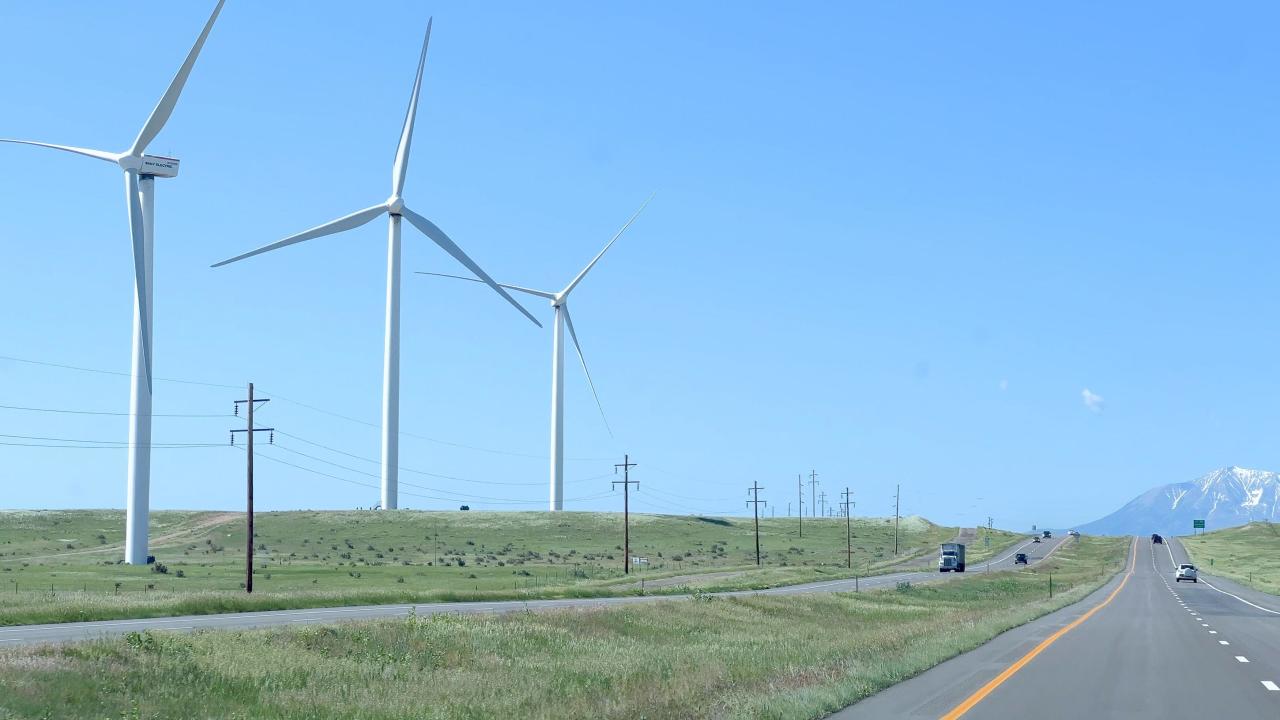

Wind Turbines Alongside a Highway with Mountain Views in Colorado (Arina Habich) Wind energy is set to overtake gas as the UK’s main source of electricity for the first time this year.
Research from Offshore Energies UK revealed that wind outperformed gas during the first four months of 2024. Experts are also predicting that this trend will continue throughout the year.
It comes as the country moves increasingly towards green energy.
The report said:
“It is possible wind (onshore and offshore) will be the largest supply source of electricity this year.
“Wind has provided more supplies than gas in the first four months of the year. This led to the carbon intensity of the UK grid falling to its lowest daily level on April 15, at 19g of CO2 per kilowatt hour.”
Last year, wind generated 82 terawatt hours (TWh) of power compared with 96TWh from gas and 37TWh from nuclear.
The report added:
“Gas will still have an important role in bringing flexibility to the system but offshore wind will provide most of the growth in power supply in the coming decades as the Government aims to deliver a decarbonised power system by 2035.
“The UK has about 15 gigawatts (GW) of offshore wind generation capacity, with targets to grow this to 50GW by 2030.”
-
Australia central bank keeps interest rates on hold
Australia’s central bank held interest rates steady as expected overnight but issued a stark warning that there were still reasons to be vigilant against inflation risks.
In its June policy meeting, the Reserve Bank of Australia (RBA) kept rates at a 12-year high of 4.35%, where they have been since a hike in November last year.
It repeated that it was not ruling anything in or out on policy.
The RBA Board said:
“The economic outlook remains uncertain and recent data have demonstrated that the process of returning inflation to target is unlikely to be smooth.
“While recent data have been mixed, they have reinforced the need to remain vigilant to upside risks to inflation.”
The Australian dollar was little changed on the back of the news at $0.6612 as the statement contained few surprises.
Money markets pared back the chance of a rate cut in December to from 65% to 55% before the announ.
Watch: How does inflation affect interest rates?
Download the Yahoo Finance app, available for Apple and Android.






